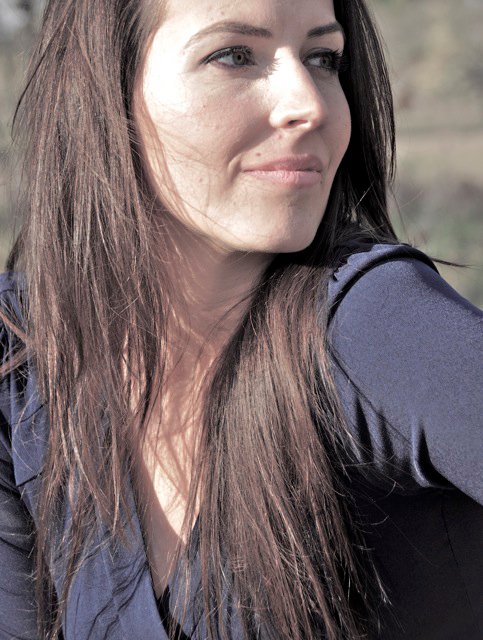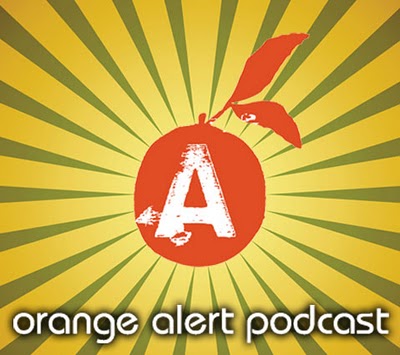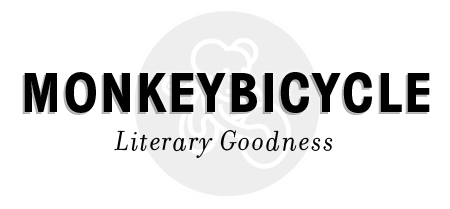How could you not love Jason at Orange Alert? For the second day in a row I get a bit of love from that lovely soul. This time, in the from of a mention on his weekly The Watch List segment for my Stranger Will book trailer.
Posts By Caleb J. Ross
Literature lover and good natured promoter of all things indy, Jason Behrends offers up his newest episode of the Orange Alert Podcast with lovely side dish of yours truly. He has included my reading of the first chapter of As a Machine and Parts (from a March reading at Method in Kansas City) in this newest episode. Jason was one of the earliest supporters of As a Machine and Parts, so it means a lot to have him include me. Listen to the full episode here.
Pablo D'Stair simply doesn't stop. He has recently begun yet another project. His Why'd You Go and Do That? series asks authors to confess to a long hidden secret, and subsequently answer a few questions about how that secret may have forged the author’s thematic sensibilities. This guy has so much going on that he's basically become his own online school. Though I hope this trend of uncomfortable confession doesn't take over his entire curriculum; someone will likely be calling HR. Head over to the Why’d You Go and Do That? site to read my confession, my answers, Pablo’s confession, and his answers to my questions. Here’s a taste: So, first thing I’d like to ask—coming at less the full on subject matter here, but one of your set-up points—is whether you feel in your desire to write some drive to eventually “be free of the tedium of a…
What follows is a conversation between myself and writer and Warmed and Bound editor, Pela Via. Why? We like chatting about ourselves. Or, read a much prettier version at Pela's blog.
 |
 |
Pela Via: Thanks for talking to me again, Caleb. You are one of the hardest workers in contemporary fiction; I always love a chance to corner you into a long, stifling conversation. Are you as prolific as you seem?
Caleb J. Ross: Prolific is a term that seems appropriate at first, but really a better way to say it would be "got lucky all at once." Stranger Will and I Didn’t Mean to be Kevin, the two 2011 novels, were both written a few years ago, each a year or so apart. And the novella also to be released this year, As a Machine and Parts, was written even later than the novels. This is all to say that I spent about eight years writing the books, but the one year release schedule implies otherwise. I'm actually quite the disappointment.
PV: Hardly. Your short work is everywhere. Do you plan to release any books in 2012?
CJR: As for 2012, nothing is contracted yet. But I have plenty to write.
PV: What do these two novels represent in your writing career?
CJR: The books both deal with parenthood, but from opposite angles. Stranger Will is about a parent not wanting his child. IDMtbK is about a child wanting nothing more than to have a parent. IDMtbK was written later, and I see it as a reaction to Stranger Will; it is both a personal goal (as in "now, let me see if I can to the opposite of what I just did") and a reader-based goal (as in "I had better show readers that I'm not as crazy as Stranger Will would imply").
PV: Do you feel more official this year, as a writer? I know it's not your first book, but Stranger Will is your first published novel. Has it helped your ego?
CJR: The ego has taken a bit of a stroke, for sure. What makes me feel the most validated with Stranger Will is that I have a lot of strangers commenting on the book. With Charactered Pieces, my first book, I would say about 70% of the readers knew me personally. With Stranger Will that number seems significantly different.
PV: I'm frightened of reaching that place where my work is just barely popular enough to be reviewed by non-friends (and consequently panned).
CJR: I wouldn't worry about having strangers review your work. I've found that the panning is about the same with strangers and friends. The difference being that friends tend to critique you as a person along with the work ("Wow, I can't imagine you writing something like this") whereas strangers tend to focus on the work itself.
PV: Interesting. So does it sting a bit more, then, when it comes from friends, if they have a complaint? Does it feel like they're speaking to your general ability as a human and writer?
CJR: Most of my friends who read early drafts are writers themselves, so I understand that all intentions are good. That said, it can still sting. But the sting is more because of my passion for the work rather than my relationship to the reader.
The wonderful bl pawelek has invited me to participate in his Ten Everywhere questions series at Monkeybicycle. Click here to read the question series. Also, don’t forget that if you comment on all guest blog posts, you will get free stuff. See all tour stops here
This entire post is pulled from the Warmed & Bound book site, written by editor Pela Via. If she didn't already have the words, I swear this could have come from my fingers verbatim (though with less Caleb Ross praise; I try to subdue the ego as much as I can): It was this time last year I sent out the first anthology emails. If I remember right, first to JR Harlan, begging for his story “Love,” and to Craig Clevenger, with more unsubtle begging. Then others, Richard Thomas, Gordon Highland and Caleb Ross, asking for publishing advice and whether they liked various titles—one a play on the well-loved existing phrase: The Velvet warms and binds. I don’t know what happened between then and now. But this photo, and rumors of other people to be similarly inked, tell one part of it better than I could. The idea of a…
Yes, another episode about the role of the whore personality among the writer's many bank of guises. This time, I approach the idea that perhaps an author shouldn't take the largest advance offered to him. What does such a gesture mean in terms of the author's career? When is it okay to take whatever money you've been given and run? Show Notes and Mentions: Paris and the Hiltons, and project mastermind Phil Jourdan The other contributors: Gordon Highland, Richard Thomas, Michael Gonzalez, Brandon Tietz, and Michael Sonbert Denis Dutton, The Art Instinct: Beauty, Pleasure, and Human Evolution photo credit: http://www.flickr.com/photos/stuckincustoms/



